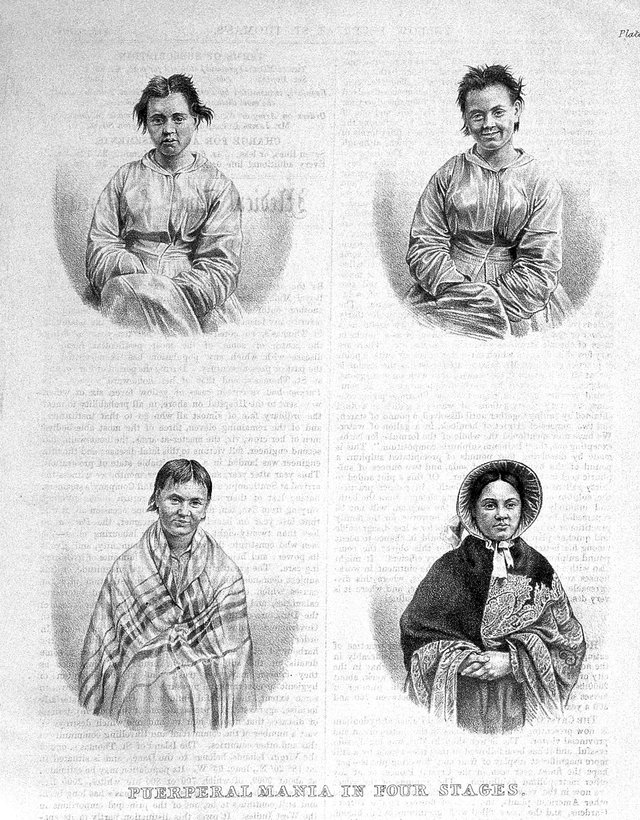PSYCHIATRIC DISORDERS DURING PUERPERIUM

Puerperium refers to the period of about six weeks after childbirth during which the mother's reproductive organs return to their original non-pregnant condition.
In the first three months after delivery, the incidence of mental illness is high. Overall incidence is about 15–20 percent. > Sleep deprivation, hormone elevation near the end of gestation and massive post partum withdrawal, contribute to the risk.
HIGH RISK FACTORS FOR POST PARTUM MENTAL ILLNESS:
Past history: Past history of Psychiatric illness, puerperal psychiatric illness increases risk in subsequent puerprtiums.
Family history: Major psychiatric illness, marital conflict, poor social situation.
Present pregnancy: Young age, cesarean delivery, difficult labor, neonatal complications.
Others: Unmet expectations.
PUERPERAL BLUES
It is a transient state of mental illness observed 4–5 days after delivery and it lasts for few days. Nearly 50 percent of the post partum women suffer from the problem.
Manifestations are—depression, anxiety, tearfulness, insomnia, helplessness and negative feelings towards the infant.
No specific metabolic or endocrine abnormalities have been detected. But lowered tryptophan level is observed. It suggests altered neurotransmitter function.
Treatment is reassurance and psychological support by the family members.
POST PARTUM DEPRESSION
It is observed in 10–20 percent of mothers.
It is more gradual in onset over the first 4–6 months following delivery or abortion.
Changes in the hypothalamo–pituitary–adrenal axis may be a causitive.
Manifested by loss of energy and appetite; insomnia, social withdrawal, irritability and even suicidal attitude.
Risk of recurrence is high (50–100%) in subsequent pregnancies.
Treatment: Treatment is started early. Fluoxetine or paroxetine (serotonin uptake inhibitors) is effective and has fewer side effects. **It is safe for breast feeding also**.
Oestrogen patch has also been used. General supportive measures are essential as in blues. If no prompt response with medication, psychiatric consultation is sought for. The overall prognosis is good.
POST PARTUM PSYCHOSIS (SCHIZOPHRENIA) Onset is relatively sudden usually within 4 days of delivery.
Manifested by fear, restlessness, confusion followed by hallucinations, delusions and disorientation (usually manic or depressive).
Psychotic women may have delusions. Suicidal, infanticidal impulses may be present. In that case temporary separation and nursing supervision is needed.
Risk of recurrence in the subsequent pregnancy is 20–25 percent and there is increased risk of psychotic illness outside pregnancy also.
Management: A psychiatrist must be consulted urgently.
Hospitalization is needed. Pharmacotherapy is effective.
Electroconvulsive therapy is considered if it remains unresponsive or in depressive psychosis.
Lithium is indicated in manic depressive psychosis.
- In that case breast feeding is contraindicated*.
Source:-William's Book of obstetrics.DC Dutta textbook of obstetrics. Shaw's textbook of obstetrics.
Hii sir @drqamranbashir , nice post and actually I want to thank you, you made the topic simple and retainable. I’m a medico from India and reading the same book mentioned by you.
Keep posting
Thank you
Good to hear.
You got a 11.54% upvote from @sureshot courtesy of @drqamranbashir!